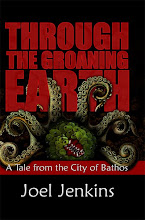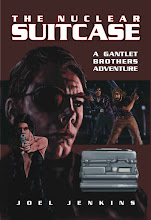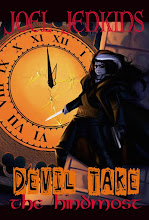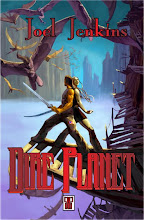
In the year 2000, in writing Dire Planet, I envisioned a 'Clip Pad' device created by NASA technology which enabled marooned astronaut Garvey Dire to store a library of thousands of books and movies. Ten years later the general public has access to the 'Ipad' which can do just that.
Though I easily imagine cutting edge technology it some times take me longer to adopt it. Being slightly behind the technological curve gives one the advantage of a lower price and an opportunity for the bugs to be worked out. For a long time I've been resisting the purchase of an electronic reader, but the falling prices of ereaders finally lured me in and I purchased a Nook from Barnes and Noble. Instead of a long-winded examination of the product I'll list some pros and cons and then make a summation.
Pros:
Good size for reading and portability
Capable of reading the standard Epub files and PDF files.
Lots of free public domain Epub and PDF files available for reading.
Barnes and Nobles offers a listing of free classic book downloads every Friday- more good books than you can possibly read in a week.
You can load up your music collection (MP3) and listen via a tiny speaker or headphones
Upgradable from 8 Gigabytes to 40 gigabytes by adding a 32 gb chip which you can get for $25 on Amazon.
Low eyestrain
Long battery life
You can fit hundreds or even thousands of books on your Nook and carry them with you.
The Nook has a small touch screen at the bottom
If you accidentally wipe out your memory you can redownload your books from Barnes and Noble at any time.
It handles black and white illustrations quite well.
It's the right size. It's easy to lounge about and read your Nook just as if you were reading a book.
Cons:
Speed of navigation: It takes time to switch between books or to find specific passages. A search function helps, but is very slow and not always effective. I've got scriptures on my Nook and it is time consuming to look up a specific passage. The Nook is not designed for any casual or serious scriptorian--only for lateral reading.
If the power goes out for three or four days the Nook will be useless
It requires a light source to read. The Nook is not backlit.
Color illustrations are sometimes translated into black and white quite well, but other times they confuse the Nook and end up looking like fuzz.
The formating on the PDF files sometimes comes out odd depending upon the size of font you choose.
Not good for visual books like graphic novels
All in all I'm quite pleased with the Nook. I've got hundreds of books loaded onto it and most were public domain and cost me nothing. There are also a number of publishers that offer very reasonable prices on their books. Largely the way I choose between hard copy and digital copy is economics. If I can purchase an electronic copy for less than half the price of a hard copy I'll go with the electronic copy.
However, the Nook is not all that I hoped. I had anticipated being able to cruise from scripture to scripture at least as fast as I could manage with paper scriptures. This was not the case. It has molasses-like navigation functions. Despite this I find the Nook a useful gadget that I'll be able to get lots of use out of--just not as much use as I was hoping.
The other day I went out of town and I took my Ipod in case I wanted to watch an old episode of Star Trek, my Nook for reading, and a AlphaSmart so I could do some writing. I realized that one compact gadget that could do all three of these things would be preferable. Turns out that Samsung's already got something on the way that's more compact than the I-Pad but has a larger screen than the Ipod touch.
The future is not this particular Nook, but barring nuclear war, it is inescapable that more and more people will be doing their reading on electronic devices. Those devices will change and evolve and each person will settle with something that fits their pocket book, their need, and their desires. The idea of a handheld gadget that does only one thing is already outdated--and there is some room for improvement on the one thing that the Nook is designed for: reading books.
Oh, there's one development that I predicted in Dire Planet which still hasn't come to pass: the 'Clip Pad' was rechargeable with solar energy. An astronaut stranded on Mars doesn't always an electrical outlet handy. Once Apple comes out with an Ipad that you don't have to plug in to keep charged up they'll really have something.




















3 comments:
And THIS explains why, every day, I seem to fall just that much more behind...
Thanks for all the information!
Pearl
Hi! I'm here by way of LiveJournal blogger dferguson. You make some interesting points, but I do take issue with your statement about a dedicated eReader already being outdated. Our current level of screen technology means that screen that is best for reading text (e-ink, as is used on the Nook, the Kindle, Sony Readers, and Kobo eReaders) is not the best screen for web browsing or showing movies, etc. I think it will be a few years yet before we get a screen that truly works as well for one as for the other. The iPad is a wonderful, flexible device, but it's a little heavy and and an LCD screen is not great for reading novels.
A lot of people use phones and similar devices for shorter reading when on the go, but still keep a dedicated eReader at home. Right now each of the e-ink eReaders has its limitations. In deciding to use a color LCD screen for navigation, Nook designers were trying to provide touch screen access, and possibly future web browsing, but it's one reason the Nook's battery doesn't hold a charge nearly as long as a Kindle.
If you want more speed, I would suggest trying out the Sony and the Kindle-- or just wait to see if Barnes & Noble comes up with a new generation device. The Kindle is on its 3rd iteration, and Sony has been around even longer. Sony has some new models coming out where they have finally been able to create a touch screen that doesn't need an extra layer of coating and therefore doesn't lose resolution.
Happy reading!
Thanks for dropping by, Karen. You make some great points and it sounds as though you've got some hands-on experience with a variety of devices.
I agree with your estimation that it will be a few years before the right screen technology is found that handles multiple functions well.
The nice thing about the Nook is that it is about the right size for comfortable reading and portability. Though versatile, the I-Pad does seem rather large. Once you get to a certain size you might as well be carrying around a full-blown laptop and so it loses the appeal of portability.
One of the things I liked about the Nook (and the Sony readers) is that they use the Epub format and can read PDF. The thing I don't like about the Kindle is being locked into their file format should I choose to use another device down the road. However, this may not be an issue for long because I believe that Kindle has released an app so that Kindle books can be read on I-pod or Ipad.
With the touch screen the Nook has the potential to be better at navigation to chapter and verse, but it doesn't seem to have been much of a consideration when programming.
It will be interesting to see the new reading and touch devices that the market produces.
Post a Comment